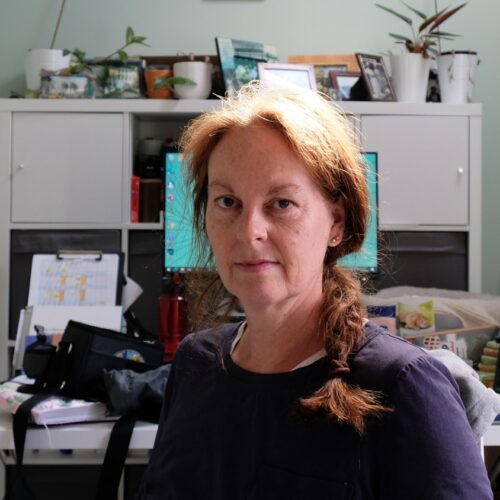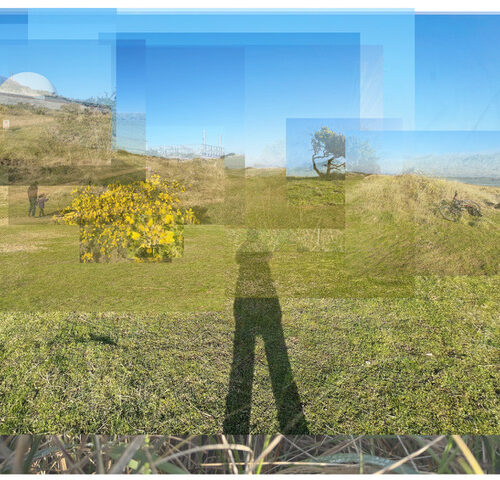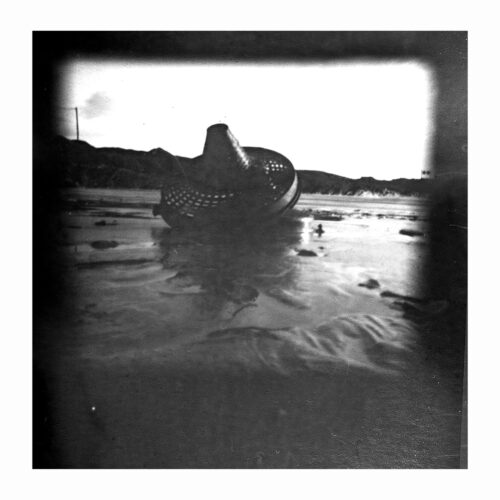
Crowd Funding

Had Jacob Riis been born in the age of the Internet he may well have invented crowd funding. As a photographer committed to bring about social change, as Miles Orvell noted in his book American Photography, the late-19th-century photographer used his images to influence public opinion and as an instrument for direct appeal. Riis was a dedicated social documentary photographer; he epitomised the concerned photojournalist committed to a noble cause. Thanks to recent crowd-funding strategies such as those offered by Kickstarter it seems to me that we are finally coming full circle, going back to the very essence of documentary more than one hundred years after photographers like Jacob Riis lay the foundations of the genre.
 Launched in 2009 as a web platform for funding personal creative projects, Kickstarter is the original crowd-funding concept. Thanks to Kickstarter photographer Pete Brook has been able to raise nearly $8,000 for his Prison Photography project. A worthwhile cause of universal social appeal, coupled with an intelligent marketing strategy, will allow Brook to develop his project and, like Riis, put pressure through public opinion and raise awareness of the social issues he is concerned with. Pete Brook’s pitch is sophisticated and extremely well conceived. By engaging award-winning photographers he made sure that the web worked for him doing what it does best: creating viral connections, disseminating information. By tapping the collective conscience, that boiling pot full of conflicting feelings about ‘the other’, and offering attractive consumer goods as ‘rewards’ (limited editions prints, signed prints, books on the project, etc…) Brook has enticed 142 people so far to support him financially. Kickstarter projects are only funded if the fundraising target is met. Amazon manages donations but no money exchanges hands until the deadline for raising funds is over. It is only then that Kickstarter and Amazon get their commission – 5% and 3-5% respectively. So simple, so effective. Here in the UK WeFund has been live for nearly 1 year. As the first UK-based crowd-funding platform for creative projects it has had great success and has helped to fund many worthwhile projects.
Launched in 2009 as a web platform for funding personal creative projects, Kickstarter is the original crowd-funding concept. Thanks to Kickstarter photographer Pete Brook has been able to raise nearly $8,000 for his Prison Photography project. A worthwhile cause of universal social appeal, coupled with an intelligent marketing strategy, will allow Brook to develop his project and, like Riis, put pressure through public opinion and raise awareness of the social issues he is concerned with. Pete Brook’s pitch is sophisticated and extremely well conceived. By engaging award-winning photographers he made sure that the web worked for him doing what it does best: creating viral connections, disseminating information. By tapping the collective conscience, that boiling pot full of conflicting feelings about ‘the other’, and offering attractive consumer goods as ‘rewards’ (limited editions prints, signed prints, books on the project, etc…) Brook has enticed 142 people so far to support him financially. Kickstarter projects are only funded if the fundraising target is met. Amazon manages donations but no money exchanges hands until the deadline for raising funds is over. It is only then that Kickstarter and Amazon get their commission – 5% and 3-5% respectively. So simple, so effective. Here in the UK WeFund has been live for nearly 1 year. As the first UK-based crowd-funding platform for creative projects it has had great success and has helped to fund many worthwhile projects.
 Earlier this year Empash.is, a specialist photojournalism crowd-funding forum, was launched. As a platform to bring an audience and a source of funding for photojournalists, Emphas.is is a direct-action solution to the financial crisis that photojournalism is facing. Engaged, long-term documentary projects, traditionally difficult to finance, have a new channel for raising funds. Emphas.is deals with donations and takes 15% commission for operational costs if the bid is successful – projects have to reach 100% or more of its fundraising target.
Earlier this year Empash.is, a specialist photojournalism crowd-funding forum, was launched. As a platform to bring an audience and a source of funding for photojournalists, Emphas.is is a direct-action solution to the financial crisis that photojournalism is facing. Engaged, long-term documentary projects, traditionally difficult to finance, have a new channel for raising funds. Emphas.is deals with donations and takes 15% commission for operational costs if the bid is successful – projects have to reach 100% or more of its fundraising target.
The benefits of crowd-funding platforms for photography projects are pretty obvious. Not only do they provide with a realistic source of financial support but they also open new forums for documentary photography. But most importantly, they are helping to redefine the concept of ‘professional’ photography: professional work reaches its intended audience. Whether that is done for profit or not is not necessarily the issue. For the traditionalists of you reading this and choking as a result of my statement please bear in mind that a great deal of the most inspiring photographic work being done out there, that which truly brings about social change, is actually done on a non-for-profit basis – think about any of the documentary awards such as the W.E.Smith Memorial Fund, or the Alexia Foundation Award.
So far so good. Now that Kickstarter and Emphas.is are in place we wonder how come similar solutions weren’t conceived a decade ago. But is it all truly good though? Or is there a caveat somewhere? I’m concerned that the boundary between that which is of public interest and has universal appeal and that which is comparatively trivial and self-indulgent may be dangerously blurred in crowd-funding. You only have to browse the eclectic range of bids on Kickstarter and WeFund to realise that. But I suppose that web users are savvy enough to tell a genuine bid from a fanciful project. However, what really preoccupies me is what happens to all the visual material generated before and during the crowd-funded projects. Specifically, whether successful documentary bidders, having been funded, may decide to publicise their work on a pro-bono basis. The result would be a surplus of quality and free documentary work. In other words, a panacea for editors.
Which brings me back to the concept of ‘professional’ work. 15 years ago professional and commercial would have gone hand-in-hand. Nowadays that is not the case anymore. Work can be professional even if its non-commercial. The quality of the work that you can see in Emphas.is, the funds it can raise, and the wide audience it reaches out are good evidence of it. I’m not saying that is necessarily good, but it’s an inevitable side effect of the web.
Digital democratised photography and crowd-funding is democratising documentary. It all makes sense to me.






Thanks for this Jose. It gives plenty of links to check out. I like what you write concerning the concept of ‘professional’ but non-commercial work. This type of funding certainly meets a need but if the work it supports is non-profit making what is going to support the photographer? Do you think this will be just a kick-start to a career which will eventually provide a living.
I’m only at the beginning of a steep learning curve but am asking this because there’s been quite a discussion on the Flickr site concerning ‘doing things for free’. I’m okay with that concept in general. Indeed, where I live we have a ‘Lets’ group where skills are exchanged on a quid pro quo basis. Following that thread I could envisage a scenario where someone would go into a photographic studio or newspaper maybe and offer technical/office support for the opportunity to be involved in editing or studio shots. I suppose that’s what’s involved in an internship. Apologies if I’m hijacking this particular post but, in my mind, it all seems to connect.
Catherine
No you’re not hijacking the post Catherine. I’m aware of the Flickr discussion and I would like to invite people to express their views here too.
A fascinating blog Jose. I haven’t seen much of Jacob Riis’s work before now and look forward to exploring further.
The whole area of crowdfunding photography projects is a very interesting development and can fund very valuable work, but it is not an easy way to get funding. I have been following this project since the start – it’s the first such project I will actually get to pay into as previous ones I have supported haven’t achieved the minimum funding requirement.
To get to a position where the project was fully funded Pete has done a great deal of promotional work and a number of interviews. He started with a very strong existing network and almost every major photography site I follow has featured the project. (My favourite so far has been Duckrabbit’s ‘Help kill Pete Broook’ http://duckrabbit.info/blog/2011/09/help-kill-pete-brook/) Pete also sends his supporters regular email updates as well as offering specific rewards for specific amounts of contribution.
Following this project has been a real lesson in how to do crowdfunding well and I recommend it to anyone who may want to consider this for a project one day. Supporting it also gives one a sense of engagement with the work which is a rather nice feeling, for very little money. Democratisation indeed.
As for Catherine’s query about whether people could use this model to build their careers: I think most crowdfunding projects tend to be ones where the artist is extremely keen to do a project for its own sake and just wants to get enough money to make that achievable. Projects tend to be social documentary in nature. I don’t see any reason why it couldn’t be used on a more commercial basis, perhaps for fine art work. In fact I think Tracey Emin did pioneer an early form of this with her Emin bonds in teh early sayd of her professional practice. I think the limits on such things are only our imagination (and our ability to persuade others that we’re a good bet).
For anyone who wants to read more about the subject of contemporary practice and funding models for photojournalism I find David Campbell an excellent source of information and opinion.
http://www.david-campbell.org/2011/04/19/crowd-funding-photojournalism-review/
http://www.david-campbell.org/2011/04/08/the-back-catalogue-photojournalism-in-the-new-media-economy/
I agree with Catherine. You’re obsessed with social documentary, which won’t pay the mortgage.
Well, I’ll tell you what I’m obsessed about Ian. I’m obsessed about fairness, tolerance, and open-mindness, all desirable qualities in a photographer. Documentary? Nah, I’m only passionate about it.
I think Ian might have misinterpreted my comment somewhat! Follow your passion that’s what I think and it’s good to see that there are growing sources of funding.
Social Documentary seems a valid topic for the blog as the OCA has a module with the same title… Won’t pay the mortgage? Well it does for some people… and those who exhibit, write about it, publish books about it, teach it, run galleries, their agents, etc etc
Without my obsession (there, I admitted it) for soc doc I wouldn’t have done a degree (relatively) late in life – an MA in photography, principally soc doc… without that I wouldn’t be an OCA tutor (which does help to pay mortgage a bit)… without the MA I wouldn’t have been accepted to do the PhD I started last week.
Passions/obsessions can lead to all sorts of interesting and rewarding outcomes. Only doing things that pay the mortgage leads to a house being paid for, but a very boring and unsatisfying life.
If you ever ask ‘Is there more to life than this?’ might a medium of self-expression that engages with people and with issues that matter be a valid answer?
[In photography] Soc Doc is what you do when you have a project that needs wider attention, what you do if you think you can make a difference, what you can do if you want to give some purpose and meaning to your work… and possibly make a difference to the subject(s) involved.
Your comment made a nice link with a recent endeavour of mine. I travelled up to the Peak District and Sheffield to visit some of the places I went to as a child, having in mind a personal project about reconnections. On the way I overtook a ‘Mobile Vintage Cinema’ only wishing I was a passenger then I could have photographed it. A few days later there I was watching ‘The Reel History of Britain’. The latest one was on Secondary Schools http://www.bbc.co.uk/iplayer/episode/p00jwr8g/Reel_History_of_Britain_Britains_Secondary_Modern_Schools/
I hadn’t known that these schools were actually an experiment in education. More than one person interviewed commented how these schools affected them then and what it was like to see their younger selves validated. this is what Soc Doc can do and I certainly intend to do this Module in the future.
Emphas.is are about to open the submission process for photographic projects. If any of you have a good idea for a documentary project that captures the imagination of the public then go to http://us2.campaign-archive2.com/?u=0affd7cccea8cc174ccaec94d&id=2832d324f9&e=d9f79a8962 and check it out.
Of course there is nothing new in the ‘how do I/we get funding for our projects?’ question. In so many ways it was this that prompted Chim, Capa and Cartier-Bresson to establish Magnum as a cooperative venture.
Hello,
you might want to check out also Crowdbooks !
http://www.crowdbooks.com
All the best,
Stefano